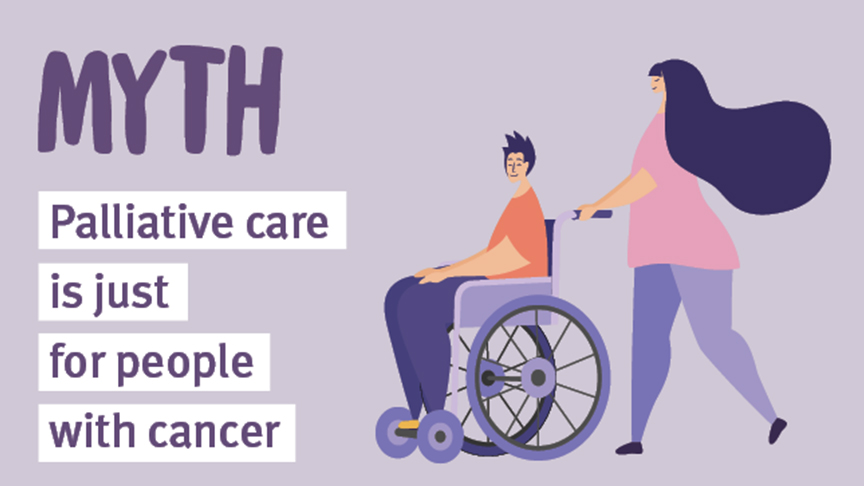
“Palliative Care…It’s more than what you think”.
There are common misconceptions about palliative care, with people often thinking its only for patients with cancer, and only at the very finale stage of life.
Our palliative care service focuses on improving the lives of people faced with life-limiting illness, making them as comfortable as we can and supporting their families. As people approach the end of life, they may choose to be at home rather than in a hospital and providing support for them to make this possible is one of our most important functions.
Our service can be accessed by anyone with a life limiting illness including chronic disease such as kidney, liver, lung and heart failure, dementia and other neurological illnesses. To access this service, a referral from a GP or specialist is required.
Toowoomba Hospital’s Palliative Care Team includes a physician, a registrar, a junior doctor, nurses, physiotherapists, occupational therapists, psychologists, social workers and a dietician.
Meet our Palliative Care #humansofhealth!
Dr Eva Harizaj, Staff Specialist Palliative Medicine
Eva is from Albania and has been working with Darling Downs Health close to six months.
“In my early career I was exposed to incredible patient and family suffering and felt helpless in trying to help them. Compassion compelled me to leave my country and get trained in palliative care,” Eva said.
Completing her haematology training in Albania, Eva moved to the UK to train in palliative care and completed her training in Australia two years ago.
“Despite popular myth, palliative care is more about living than dying,” Eva said.
“My favourite part about my role is controlling patient’s physical and psychological symptoms and seeing their autonomy restored.
“I also love the peace the palliative care often leaves behind when the patient and family feel valued, supported and listened to.
The peace also stems from being able to see the way forward, appreciate uncertainty and have a strong advocate in their corner,” Eva said.
Eva’s message for the community during this new normal is, ‘Don’t forget to love and look after each other.”
Karen MacKellar, Clinical Nurse Consultant Palliative Care
Karen worked in acute neuro medicine for six years, followed by almost two years running haematology and bone marrow transplant unit before moving into palliative care.
“I worked as a clinical nurse in palliative care in the UK before moving to Toowoomba in 2012 to do the role I am doing today,” Karen said.
“I chose palliative care nursing as I want to ensure patients receive high quality, dignified end of life care.”
Karen said her favourite part about her role is helping people to achieve their end of life wishes and supporting patients and their families through what is such a difficult time.
“It’s so important to talk to your loved ones about their wishes for their future and what they would want should they fall ill. Advance Care Planning is the key to good palliative care.
Two myths busted about Palliative Care:
Myth: Palliative care is just for people with cancer
Fact: Palliative care can be accessed by anyone suffering with a life limiting illness, including chronic diseases such as kidney, liver, lung and heart failure, dementia and other neurological illnesses as well as certain conditions among children.
Myth: You can only receive palliative care in a hospital.
Fact: Palliative care is provided in many places including hospital, hospice, aged care facilities and in the home.